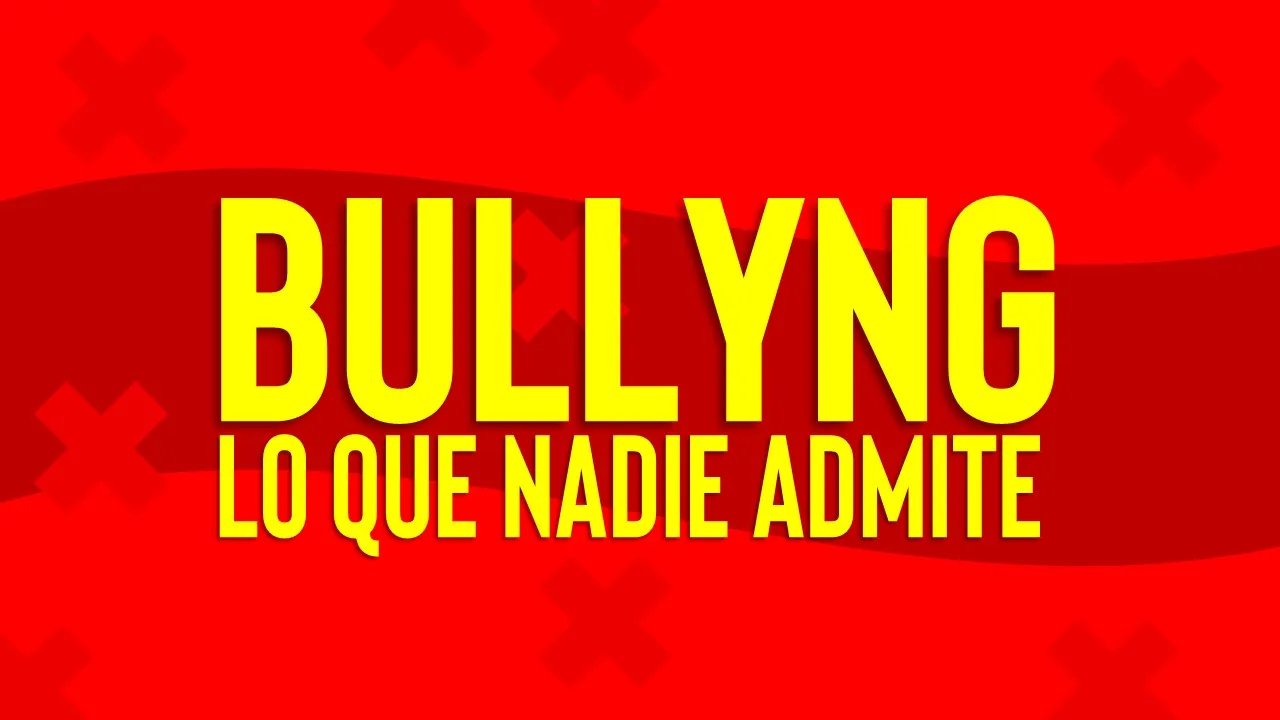
El bullyng es uno de los temas más tratados en la actualidad en los colegios, y eso está bien. Desde un comentario de burla basado en la ironía, hasta las situaciones que involucran golpes en todos los puntos de vista están mal. Cada persona tiene sus luchas personales, y no sabemos cuanto sufre cada persona detrás de una cara sonriente. Por lo cual se nos invita a ser más empáticos con las demás personas. Pero en este caso hablaré desde el perfil de un padre cuyo hijo es el bullyng del colegio, o de la comunidad. No porque tenga un hijo en esa situación, (tengo una pequeña niña que a penas tiene 2 años) pero creo que es importante sabes ciertos puntos.
Bullying is one of the most talked-about issues in schools today, and that's okay. From a mocking comment based on irony, to situations that involve hitting in all points of view are wrong. Each person has their personal struggles, and we don't know how much each person suffers behind a smiling face. So we are invited to be more empathetic with other people. But in this case I will speak from the profile of a parent whose child is the target of bullying at school, or in the community. Not because I have a child in that situation, (I have a little girl who is barely 2 years old) but I think it's important to know

Y SI MI HIJO ES EL BULLYNG
Como padres esperamos de nuestros hijos que sean personas inteligentes, sobresalientes en todo, de buena conducta; es lo que consideramos como bueno obviamente. Pero por diversas causas ese hijo se convierte en el bullyng de colegio (hablo de cualquier nivel escolar), siendo este quien señala, se burla, juzga, cuestiona, y hasta golpea a otros niños. En esa situación muchos padres se quedan de brazos cruzados porque no es su hijo quien está siendo objeto de bullyng sino el de otra persona. Asumimos muchas veces hasta el rol de encubridor de toda clase de abusos.
AND IF MY CHILD IS BULLYNG
As parents we expect our children to be intelligent, outstanding in everything, of good behavior; it is what we consider as obviously good. But for various reasons that child becomes the bully at school (I'm talking about any school level), being the one who points, mocks, judges, questions, and even hits other children. In this situation many parents stand idly by because it is not their child who is being bullied but someone else's child. We often take on the role of a cover-up for all kinds of abuse in order to prevent it from happening.

¿QUIEN NECESITA BUSCAR AYUDA?
Nos hemos acostumbrado a que las persona que sufre los abusos es quien necesita buscar apoyo o ayuda para evitar los traumas que puede causar los abusos de otros. Pero, el abusador también requiere buscar apoyo, y se le debe hacer entender lo valioso que es tener empatía, respeto, y compañerismo.
Ambos requieren ser tratados, porque si somos padres que observamos una conducta abusiva en nuestros hijos debemos ser los primero en alertarnos y ayudar a corregir cierto comportamiento. Bien sabemos que en un futuro nuestro hijo podría no medir las consecuencias de sus actos.
WHO NEEDS TO SEEK HELP?
We have become accustomed to the fact that the person who is abused is the one who needs to seek support or help to avoid the trauma that can be caused by the abuse of others. But, the abuser also needs to seek support, and should be made to understand the value of empathy, respect, and companionship.
Both need to be addressed, because if we are parents who observe abusive behavior in our children we should be the first to be alerted and help correct certain behavior. We know that in the future our child may not measure the consequences of their actions.

LA EMPATÍA EN LA ACTUALIDAD
Sé que como padres también tenemos el temor o la preocupación de que no sea nuestro hijo quien sufra los abusos de otro compañero. Pero cometemos el error de enseñarles a ser niños egotistas, egocentristas, orgullosos, y a tener una actitud defensiva para evitar que sean ellos los que sufran bullyng. Pero creo que si les enseñamos a compartir con armonía, a entender los sentimientos de los demás y a saber que cada quien es diferente y vale por lo que es; sería más fácil promover la convivencia en armonía en todos los niveles de la educación.
EMPATHY TODAY
I know that as parents we also have the fear or concern that it is not our child who suffers the abuse of another classmate. But we make the mistake of teaching them to be selfish, egocentric, proud children, and to have a defensive attitude to prevent them from being the ones who suffer bullying. But I believe that if we teach them to share with harmony, to understand the feelings of others and to know that everyone is different and worth for what they are, it would be easier to promote harmonious coexistence at all levels of education.

TRATA A LOS DEMÁS COMO DESEAS QUE TE TRATEN A TÍ
Cuando veamos un comportamiento abusivo en nuestros hijos no nos sintamos orgullosos ni solapemos este tipo de conductas, que al final terminan haciéndole daño a ambas partes. Por el contrario, enseñemos este principio tan valioso que es: Trata a los demás como deseas que te traten a ti. Es un principio que nos permite ponernos en el lugar del otro antes de señalar, de juzgar o criticar. Antes de decir algo, debemos medir bien nuestras palabras porque no sabemos que lucha trae cada persona, que dificultad está atravesando. Pongámonos en el lugar del prójimo seamos mejor el que ayuda, el que extiende una mano de apoyo y el que da una palabra bonita.
El tema que hablé ha sido una reflexión basándome en el valor de la empatía, espero haya sido de tu agrado y gracias por leer.
"La vida es demasiado corta como para vivir dañando a otros, seamos quienes construyen; no quienes destruyen"
TREAT OTHERS AS YOU WANT THEM TO TREAT YOU.
When we see abusive behavior in our children, let us not feel proud or overlap this type of behavior, which in the end ends up hurting both parties. On the contrary, let us teach this valuable principle: Treat others as you want them to treat you. It is a principle that allows us to put ourselves in the other's place before pointing fingers, judging or criticizing. Before saying something, we must measure our words well because we do not know what struggle each person brings, what difficulty he or she is going through. Let us put ourselves in the place of our neighbor, let us be the one who helps, the one who extends a hand of support and the one who gives a nice word.
The topic I spoke about was a reflection based on the value of empathy, I hope you liked it and thank you for reading.
"Life is too short to live hurting others, let's be those who build; not those who destroy".
